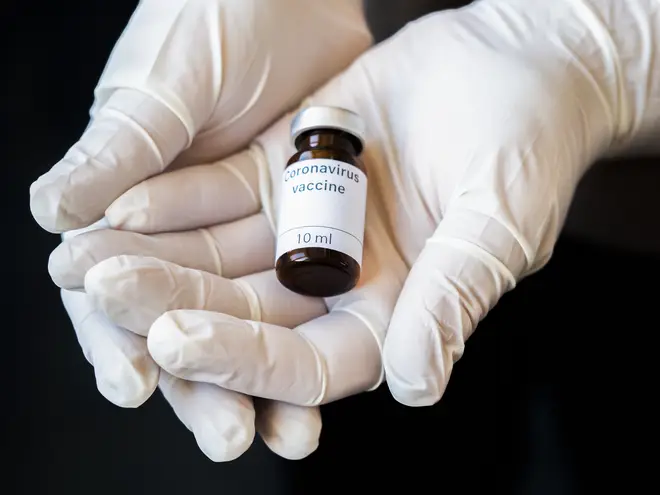
Oli Dugmore 4am - 7am
22 April 2020, 21:14

Vaccine trials: Scientist explains how they work and when we can expect results
The coronavirus vaccine trials start tomorrow - this scientist gives an engaging explanation of how they will work and when we can expect to see the results.
The likelihood of having a coronavirus vaccine in the next calendar year is "incredibly small," according to England's chief medical officer.
Professor Chris Whitty said people should be realistic about how long it would take for an effective Covid-19 vaccine to be developed however he added he was "very hopeful" the UK may see a high quality treatment soon.
He said this on the eve of researchers at the University of Oxford beginning human trials of a vaccine candidate.
Doctor Sarah Gilbert from the research team "gave hope" that her vaccine could be the breakthrough everyone is yearning for - Iain put this to pharmacoepidemiologist Professor Stephen Evans.
Professor Evans said that he would "probably not be quite as optimistic" as Professor Gilbert but it is "not totally unreasonable" her predictions may be correct as she of course knows her vaccine better than he does.
"Very often we find unexpected things and that causes delays rather than speeding up usually but it certainly a possibility."

Explaining the trial, he said, "These are definitely volunteers, we need to test them on healthy people not just accept clever peoples' word that it works. The Oxford group will inject some people with this vaccine and they will give others a meningitis vaccine that we routinely give to children and they won't know which they've got.
"Then you check whether it works and you check both for benefits and any possible harms. The first thing you check is immediate reactions, whether there's pain, a redness at the site, you often get a fever in the next 48 hours. Those are minor harms you see with almost any vaccination.
"We call that measuring the reactogenicity, does it react. If it did nothing, it wouldn't be doing any good."
Professor Evans said the second thing you study is the response in the blood, the immune response in constituents of the blood, and that's "called immunogenicity, is it going to give you immunity."
"The third one is you say, in theory it gives you immunity, let's whether if it does and you see whether people get Covid-19 or not ig=f they were exposed to SARS coronavirus."
He said the fourth stage is measuring long-term effects but "we probably won't do that in this trial."
Professor Evans acknowledged that giving participants coronavirus would be deeply unethical: "Because you can measure the immune response from the blood, you have a very very good idea if it will work when somebody is exposed to coronavirus.
"What you do is you hope some of these people will just by chance, by living around the world, will be exposed to coronavirus and then you will be able to measure the clinical benefit.
Iain asked if 12 months was a reasonable amount of time to expect a vaccine to be found.
"I think we'll have the initial results within six months," Professor Evans said, "possibly Professor GIlbert suggested September, my best guess would be in October. We don't know whether that will happen but if there are lots of people recruited quickly, then that will happen.